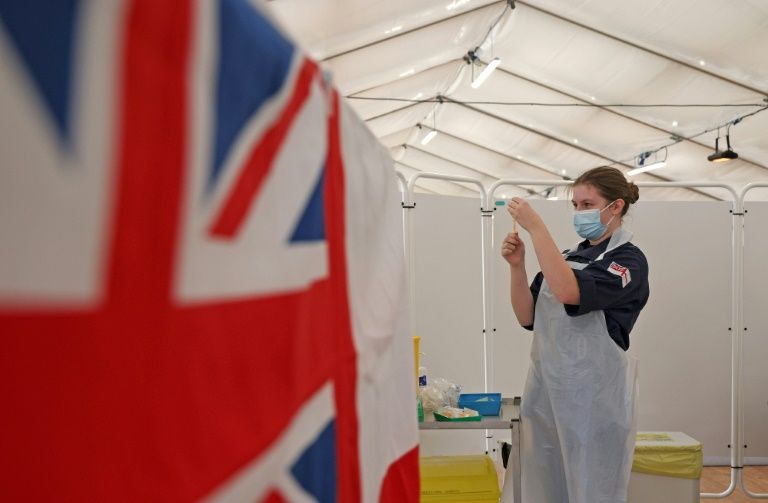Europe awaits AstraZeneca approval as virus variant worries grow
Amsterdam (AFP) – European regulators were expected to announce Friday if they have approved the Oxford-AstraZeneca coronavirus shot, as concerns grew around the world over the effectiveness of vaccines against new variants of the deadly pathogen.
Scientists are concerned that the coronavirus variant first detected in South Africa appears capable of eluding some of the current vaccines and treatments, which are considered crucial to ending a pandemic that has killed close to 2.2 million people worldwide.
The European Union’s Amsterdam-based medical regulator was due to hold a press conference at 3pm (1400 GMT) after a meeting of experts that may approve the AstraZeneca shots, as frustration and pressure grow over its stumbling start to the inoculation campaign.
“Provided that the data submitted on the quality, safety and efficacy of the vaccine are sufficiently robust and complete,” the experts committee could recommend authorisation on Friday, the European Medicines Agency said.
The approval would cover the 27 EU member states as well as Iceland, Liechtenstein and Norway, which are part of the European Economic Area. The EMA has already approved the Pfizer-BioNTech and Moderna vaccines.
It remains to be seen, however, if the EU regulator will bar people over 65 from getting the AstraZeneca shot, following Germany’s lead. AstraZeneca has defended its vaccine’s efficacy in that demographic.
Casting a shadow over the EMA meeting is the bitter row over the supply of AstraZeneca doses between the EU and Britain, with the firm saying there is not enough to go around as production issues have slowed down promised deliveries.
Britain has one of the highest Covid-19 death tolls in the world, and is trying to accelerate vaccinations to stop an overwhelming surge in infections.
The disease has seriously impacted not only the physical but also the mental well-being of many patients.
“It’s a fear because you have to be isolated, you feel like you’ve just vanished,” said Justin Fleming, a 47-year-old recovering from Covid-19 in a busy London hospital ward.
“I thought I might not see my partner again, my mum, be a dead friend, be just a stat.”
– ‘Sentenced to death’ –
The pandemic has not slowed down, with infections soaring past 101 million worldwide, and despite the rollout of vaccines, the fight has been further complicated by the emergence of more contagious variants of the virus.
American biotech firm Novavax said Thursday its two-shot vaccine showed an overall efficacy of 89.3 percent in a major Phase 3 clinical trial in Britain, and was highly effective against the variant first detected there.
But other results showed it offered significantly less protection against the variant that emerged in South Africa.
Pfizer and Moderna have said their vaccines are effective against the variants.
Until a high level of immunity in populations is achieved, restrictions such as lockdowns remain among the few options available to governments — but they are deeply unpopular among many.
Despite having one of the world’s highest vaccination rates, Israel is also expected to extend its third lockdown.
“Another week like this (of lockdown) and I feel like I’ve already been sentenced to death,” said Kobi, a shoe shop owner in Tel Aviv.
“I have nothing more to say, I’m exhausted.”
– ‘Burn down their houses’ –
There was anger in neighbouring Lebanon too, where crowds gathered outside the homes of some of the country’s top politicians on Thursday, torching rubbish and smashing surveillance cameras.
“We want to burn down all their houses the way they burned our hearts,” said Omar Qarhani, an unemployed father of six in Tripoli.
The impoverished northern city has seen four days of clashes between security forces and residents outraged by curfew measures they say are destroying their livelihoods.
The coronavirus has hammered economies around the world, and led to demands for explanations of its origins.
World Health Organization experts visited a hospital in the ground-zero Chinese city of Wuhan on Friday, beginning a highly politicised mission to search for clues about the origin of the pandemic.
The probe has been beset by delays with China refusing access until mid-January, while Washington has demanded a “robust and clear” investigation.
burs-qan/hg
Disclaimer: Validity of the above story is for 7 Days from original date of publishing. Source: AFP.


